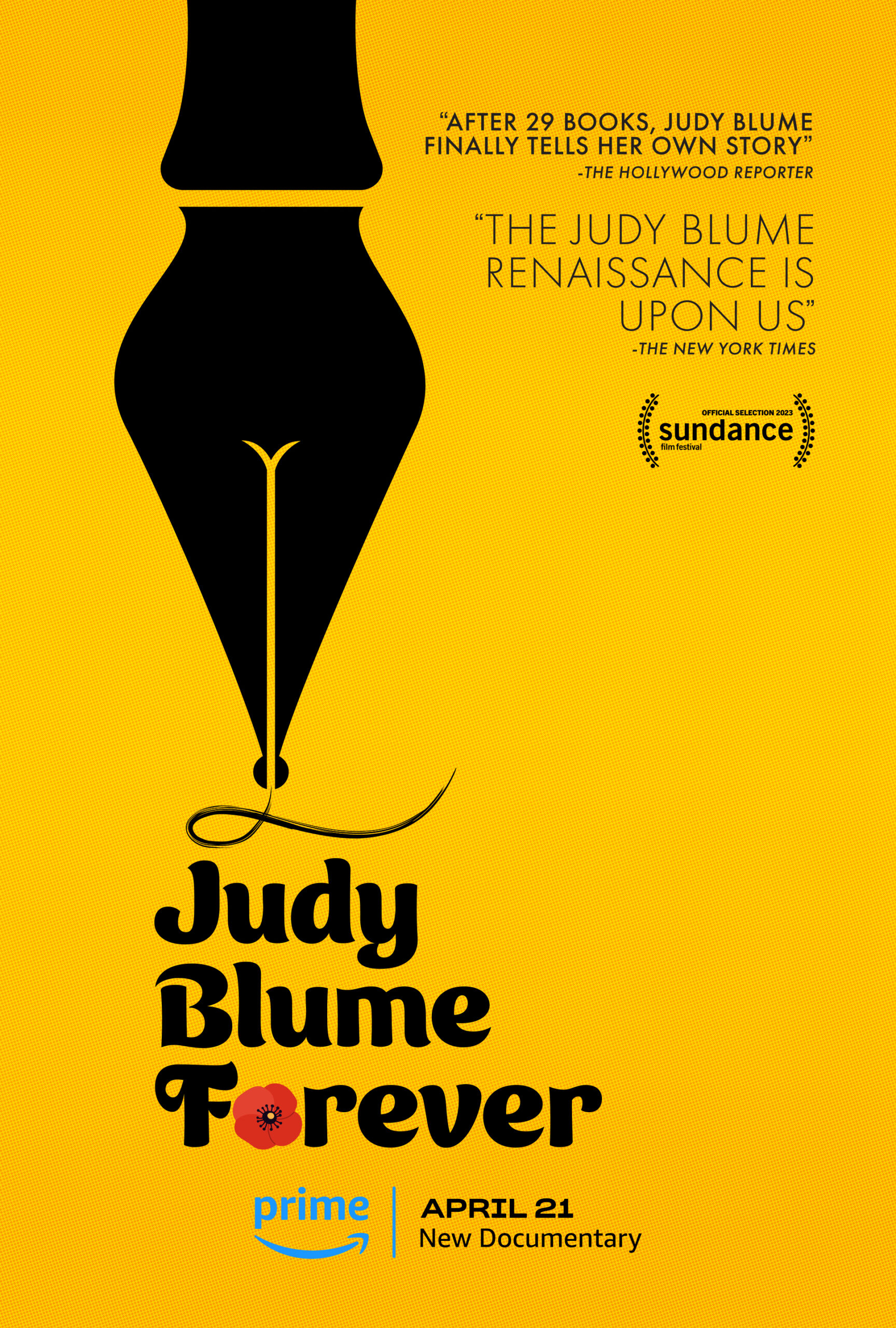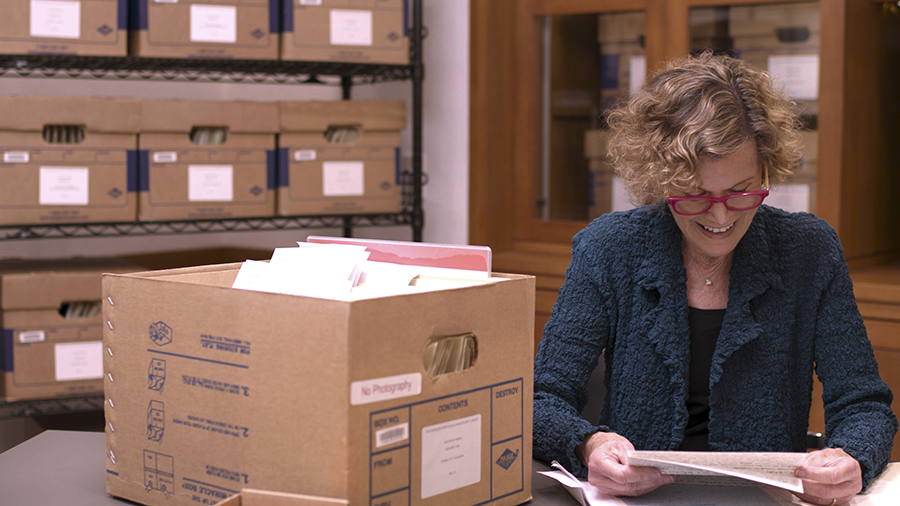New ‘Judy Blume Forever’ Doc Celebrates the Beloved Author’s Literary Legacy

The new documentary 'Judy Blume Forever,' which premièred April 21 on Prime Video, arrived just a week before the release of the first-ever screen adaptation of her seminal book 'Are You There God? It's Me, Margaret.' Photo: Courtesy of Prime Video
“When are you going to write a real book?”
That is what the women around her said for years to Judy Blume, Living Legend, sometime after she had started to become a Young Adult literary sensation. Shady asides — delivered with a titter, or glance — at a party, or something, inside the insular suburban fold that was her base in New Jersey (one can hear the Mad Men-era cocktail shakers).
If they could see her now!
After 29 books, and more than 90 million copies sold — and a voice that remains seminal, even here in 2023 — the 85-year-old Blume makes an even more poignant confession in a sprawling new documentary about her life, Judy Blume Forever, one regarding her quicksand of a marriage at the time. “I don’t think he ever read one of my books,” she matter-of-facts about John Blume, the man she had married mere weeks after losing her beloved father (baggage she evidently carries to this day, given how often this defining moment comes up in the telling of her own life).
Plot. Flow. Chewy dialogue. A sparky protagonist, combined with a mesh of loveable supporting characters. This real-life doc has, indeed, everything people have come to expect from a Judy Blume page-turner, as it traces her life through her upbringing in the 1940s and ’50s to beloved American cultural figure: marriages and divorces, love and loss and being Judy Blume to her own children, finding her own voice, making mistakes, becoming a lifeline to young people over many generations and the enormous backlash that Blume faced, in particular, during the Moral Majority/Ronald Reagan era of the ’80s (a fight that she has found herself on the frontlines of again today, with the book-ban wars amid the rising rhetoric of “woke”).
The experience of watching Judy Blume Forever will be compared by many to seeing the life of Fred Rogers playing out in Won’t You Be My Neighbor — and rightly so. They are companion films, in terms of their of riptide emotion, and how they tell a story about the wider culture through the lens of one person. It helps, too, that it happens to come during a veritable Blume Boom, with this spring also seeing the first-ever screen adaptation of her most seminal book, Are You There God? It’s Me, Margaret.
Catching the Amazon Studios documentary at its première during the Sundance Film Festival in January, the only review I needed was turning back in my seat and seeing the smiles and tears on the faces of almost everyone in the audience. Beaming in from Key West, Fla., where she lives now — and runs a bookstore of her own! — Blume, likewise, was overcome, telling the crowd: “Oh my god, it’s so weird to see yourself and, you know, your life. It’s like you’re looking at somebody else. I love watching everybody else. But then when I was on screen, it’s like, ‘Who is that woman? And she needs a good haircut.’”
Banter aside, the project — directed by Judy-heads Davina Pardo and Leah Wolchok — largely succeeds in its expansiveness, looking at the author from a myriad of perspectives. But one thing that stood out the most (and consider this your primer) is the way it shows her true superpower: her empathy.
“I have total recall,” says the author of such classics as Tiger Eyes, It’s Not the End of the World, and Tales of a Fourth Grade Nothing, at one point — a throwaway line that also happens to get to the heart of it.

She remembers all the feelings of adolescence so intensely, even now, that it is a part of her body and what eventually came out on the page. It’s one reason why she remains a touchstone for the flotilla of celebrity fans who people this documentary, and speak warmly to her influence — women like Lena Dunham, Samantha Bee, Molly Ringwald and Gossip Girl writer Cecily von Ziegesar — and also women (and men!) from a wide range of cultural backgrounds and sexual orientations.
Near the top of the doc, Blume mentions, too, that she always hated when adults kept secrets from her as a child (like the Holocaust that was raging when she was a kid, so far away — something not discussed in her Jewish household). So, she set out to write honestly about the realities of the world, including … well … talking about sex, puberty, bullying and divorce in a way that had really not been done before for young people.

To this end, the film is most touching of all when it pans to the stories of many of the readers that Blume actually kept a pen pal relationship with, sometimes over many decades — relationships that bloomed to the point that she even attends the graduation of one of her fans. Feeling alone, or sad, or just confused, but unable to commit to writing their thoughts down in a diary, they would write to Judy. Oh, did they! Blume received 1,000 to 2,000 letters a week at their height.
No surprise, then, that the defining moment of this movie is when we get to watch Judy revisit a box of these letters — all of which have been kept and properly stored. Her face lights up. She remembers. She wrote for them, and they wrote her back.
The power, alas, of words.
Judy Blume Forever is available on Amazon Prime Video now.
RELATED:
Adrienne Batra on Judy Blume, ‘The Fountainhead’ and her fascination with Jane Austen
Fall on Your Knees: Ann-Marie MacDonald’s Literary Classic Comes Alive in New Stage Adaptation